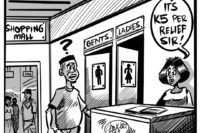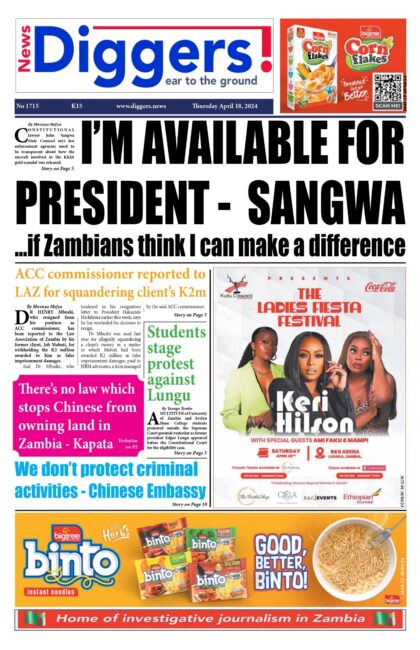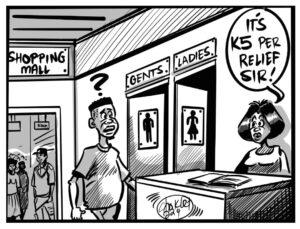AVAP, in partnership with the Germany Technical Cooperation, has initiated a project meant to encourage citizens to demand for quality service delivery in relation to revenue collected by local authorities in markets and bus stations.
AVAP executive director Richwell Mulwani told News Diggers! in an interview that the Local Participation in Governance (LoPaGo) project was piloted in North-Western Province where community meetings were held in Tuvwanganai and Kimasala wards on revenue collection and service delivery by the Solwezi Municipal Council.
He explained that key issues people complained about were lack of water and proper toilets in some markets and the local authority’s failure to construct a modern bus station and market where all traders could fit despite having collected revenue.
“The LoPaGo project, which we are currently implementing in Tunvwanganai and Kimasala wards in Solwezi District, is meant to engage citizens to demand for quality service delivery in relation to revenue collection by the council in markets and bus stations. During the meetings we held with people in these areas, we discovered that the community was grappling with water supply, bad state of markets and bus stations. It was also found that there were no disposal bins for litter at bus stations within town. This was even confirmed by the council during the presentation of ward reports to the council. As AVAP, we worked together with citizens to lobby for 50 bins from Kansanshi Mine, which will be donated to the council and they will decide how to distribute these bins in the town so that people do not have to throw litter anyhow as they move about in town,” Mulwani explained.
He said it was regrettable that local authorities in the country were not providing quality services to consumers despite having collected revenue from them.
“Councils are supposed to provide quality services to people at a local-level and the participation of citizens at the local-level is critical to check whether the local authorities are carrying out their mandate. So, during those interaction meetings that we had, our role was to mobilize the community and engage them and find out from them whether the services that they are receiving from the council are adequate enough. What we discovered was that the people have so many problems that were not addressed. There’s no water in the markets; the toilets are not being used because of water problems. So, they started complaining that the markets are there, but some of the problems that they are facing are that the markets have no water and people have resorted to using nearby unfinished houses to help themselves! But these are people who have been paying revenue, but the council is slow in providing services. For example, at Messenger Market, the market is there, but the pillars that they’ve put there for the shelter is not stable. When there is wind, the market is shaking terribly, you can imagine how these people feel,” said Mulwani.
“So, when we organized these meetings, it was a very good platform for the residents to speak out. It is really a challenge. That is why this project, therefore, aims at encouraging people to voice out on things they feel the local authorities are not doing. So, now that they understand what is expected of the local authorities, they can now start demanding for what services they deserve from the duty bearers. So, this is what we’ve so far done here in Solwezi and we still conducting these meetings. We will continue engaging communities in various places in terms of how the local authorities are attending to their needs at that level.”












